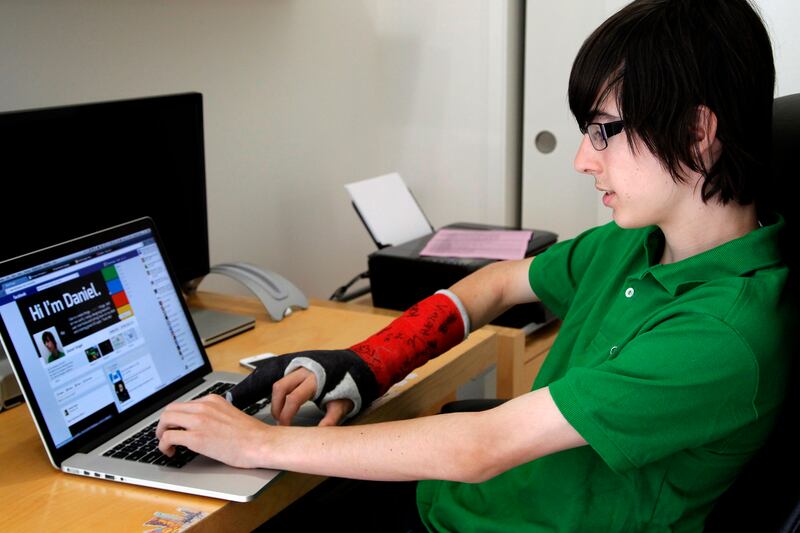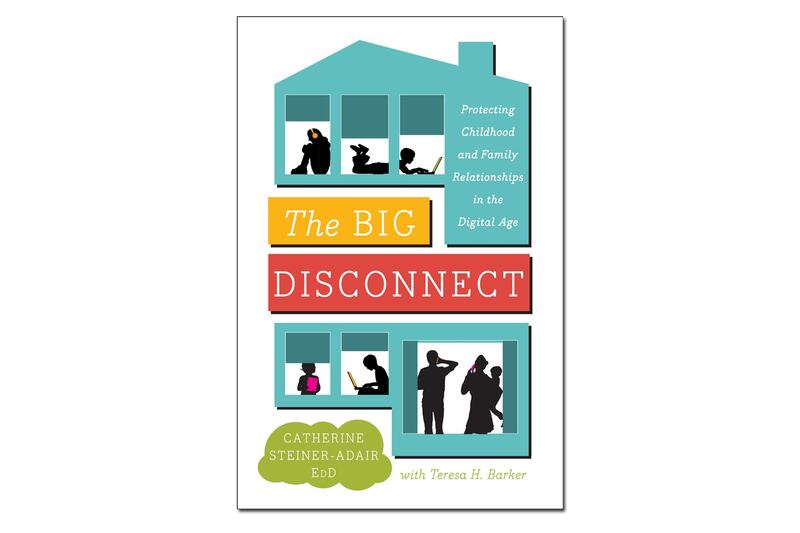What is your big idea?
When children and families see me privately, often in a crisis or when a child’s situation has become more than they can manage or ignore any longer, parents’ responses are always a significant factor. What we say and how we say it matters to our children.

In therapy, at parent talks, and in my travels and interviews sharing The Big Disconnect, one of the most common questions parents ask is: Should I monitor my child’s Facebook? The more important question is not whether you should have access but what you do with it: How do you react to what you see or read there?
I spent three years interviewing more than one thousand children ages four to eighteen for the book to get a sense of what makes a parent approachable, trustworthy. What makes kids feel safe and secure, able to go to a parent if they have a problem, need advice, or if they’re worried about a friend? Kids were quick to tell me about things parents do that make them not want to go to them for advice or help. Three words come up repeatedly in descriptions of trust-busting parental behavior: Scary. Crazy. Clueless. (Keep these in mind as you think about how you respond to what you might see or read on your child’s Facebook.)
The Scary Parent is over-reactive, intense, or judgmental, prone to catastrophic predictions: You’ll ruin your chances for college, for marriage, for life! We would die if you were ever caught doing that!
The Crazy Parent amplifies the emotion or the drama in any given situation. If their child is a little upset, they are more upset. If a child thinks something was sort of unfair, the crazy parent is adamant that it was completely unfair. Crazy Parents often step in to fix things, a vote of no-confidence in their child.
The Clueless Parent may be oblivious to or overwhelmed by various things, but one red flag is the statement: “My daughter (or son) and I are best friends.” Kids need parents to be parents—not pals. When parents prefer being a best friend to being a parent, they shortchange their kids, who need parental guidance and authority, as well as their love, acceptance.

The notion that it’s possible to control your children and control how the world responds to them is the ultimate cluelessness. The sooner we understand that they will make their own choices, or will have regrettable experiences, the sooner we can turn to finding ways to be helpful—open, calm and approachable. We have to cultivate that relationship over time and in the everyday moments that establish patterns and expectations of trust, honesty, and closeness. That’s the Go-To Parent.
Should you be your child’s Facebook friend?
That can vary depending on your child’s age, social and emotional maturity, and street savvy about online life. My default position: as a responsible parent you should have access to your child’s Facebook and you should check in just as you should if kids are gathered at your house for a party: you walk through, bring in food, sniff, and look around for “water bottles” spiked with something else. You do not belong on the couch chatting and watching the movie right in there with them. Let the kids have their space; you keep it safe.
A high-school junior told me she was mortified when her mother ignored the most basic netiquette and, after seeing that a girl had posted a crude comment on her Facebook wall, posted a scolding note to the offending girl and called the girl’s mother. Mom didn’t realize that the crude comment was just a phrase from a popular song. Another told me: “I can’t show my mom any of my friends’ photos because she thinks it’s her job to call everybody’s mother. It’s one thing for her to tell me what’s right and wrong, but …” Don’t be that parent.
Should parents implement something like “device-free” Saturdays?
Yes. Call it the new “family plan”—one that’s focused on creating some tech-free time for conversation, play, outdoor activity, or just time alone. There is no substitute for unplugged family time and the way it gives relationships and closeness a chance to grow. Maybe it’s a day each week, or smaller chunks of time more often. Be realistic. Make it manageable. On vacation, most kids and grownups want time at the ends of the day to check devices. Parents often report that kids complain or refuse, but your persistence will pay off. Hang in there; this too shall pass. Kids also complain about parents being hypocrites and cheating on the tech-free time period. Let that be part of the discussion before the time arrives. Don’t cheat.




